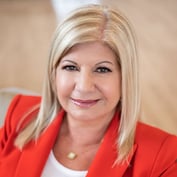As a therapist, coach and author, I’ve been involved for decades in an effort to educate and empower more women about their financial choices. It’s devastating to learn in survey after survey that women are still behind in virtually all areas of financial planning. Many of them don’t seek financial advice because they feel so overwhelmed and intimidated. Even though women now outnumber men in college, new planners are still chiefly men. Is half the population to be left outside in the financial cold?
One thing we have learned quite recently is that not only are women socialized differently from men as they grow up, but their brains are actually hard-wired differently in some important ways. My February Investment Advisor cover story, “Double Think,” included some gender difference insights from wealth psychology expert Kathleen Burns Kingsbury’s recently published book, “How To Give Financial Advice to Women: Attracting and Retaining High-Net-Worth Female Clients.” For ideas on how advisors can help serve women at all levels of wealth more effectively, and how the planning profession can attract more female practitioners, I interviewed Kingsbury.
Olivia Mellan: As a behavioral change specialist, what do you think financial advisors need to know to build stronger relationships with female clients?
Kathleen Burns Kingsbury: I believe that financial advisors need to appreciate gender differences because women are neurologically wired for connection and socialized to value relationships. Based on that, advisors need to do some different things when prospecting and working with female clients versus male clients.
One thing is that they need to listen to women in the way that they want to be listened to, which can be different from a male client. Women want to share their stories with you; they want you to ask curious questions to learn more about them and their family; and they want to know you have their best interests in mind, to demonstrate that you care. Another thing is that women really want to take some time to build up trust with their financial advisor—they don’t like to be rushed.
Lastly, women want to know how accumulating wealth is going to help them achieve their real-life goals; they’re interested in making a profit, but they want to know what the profit will do for them. It’s a more holistic view than many men, who are often interested in beating the market and beating their friends.
OM: You mentioned the importance of trust. How can an advisor go about building trust with female clients?
KBK: I recommend learning the acronym TRUST, which means being Thoughtful, Reliable, Understandable, Sensitive and Transparent.
Thoughtfulness is remembering the details and letting your female clients know they are more than their assets.
Reliability is saying what you’re going to do and doing it; and also communicating where you are in the process of getting things done.
Understandability means losing the jargon.
Sensitivity means paying attention, not only to what she’s saying, but what she’s feeling about money, her investments and her life plan.
Transparency is being authentic and open about your fees, your biases and what type of client you like to work with.
OM: Research shows that many widows and divorcees fire their financial advisor within a year of losing their spouse. Why is this?
KBK: I believe that the 30% of advisors who retain these female clients have been proactive in developing a trusting relationship with her and her spouse. They have avoided the mistake that many in the industry make, which is to overlook or neglect the female role in family finances.








 April 01, 2013 at 08:00 PM
April 01, 2013 at 08:00 PM










